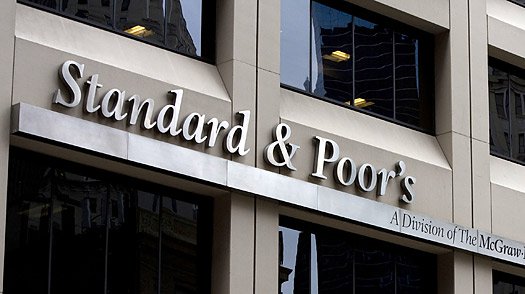S&P Global Ratings, a credit rating agency, has highlighted the stable political environment after the February 8 elections, the new government’s support from the public and collaboration with the key institutions in the country as the factors to secure external finance and improve credit rating.
A more stable political environment in Pakistan is likely an important precondition to repairing the government’s creditworthiness, S&P’s analysts KimEng Tan, Andrew Wood, and YeeFarn Phua said in a recent report.
“If the coming elections yield a government that has popular support and is able to work with key institutions in the country, it will have a better chance of securing external financing from the IMF,” read the report.
“Together with new policy moves to improve investor confidence and bring down inflation, this could lift fiscal and external metrics sufficiently for the sovereign ratings to move to the ‘B’ rating category, the credit rating agency said.
S&P sees a path for Pakistan’s upgrade to ‘B’ after the election results. Pakistan is currently rated ‘CCC+’ by the agency, according to Bloomberg.
The credit rating ‘B’ suggests the nation has the capacity to repay the foreign debt on time but still faces a degree of uncertainty that could lead to missing the repayment obligation later on.
Pakistan’s politics has been in a state of flux since the ouster of former Prime Minister Imran Khan of the Pakistan Tehreek-e-Insaf (PTI) party in a parliamentary no-confidence motion in April 2022.
The political turmoil has hampered the government’s reform efforts to deal with economic challenges in the last two years and has damaged sovereign credit metrics.
Elections may bring more risks than usual to Asian government ratings in 2024. Political and policy uncertainties often accompany elections. And weakened fiscal and external balance sheets could magnify their impact this year.
Government finances are still recovering from the damage dealt by the pandemic and inflation. Weak exports and increased capital outflows also weighed on sovereign external metrics last year. And just as inflation and interest rate expectations are coming down, the Israel-Hamas war makes further improvements more uncertain.
Governments typically have less policy flexibility around election time. Policy responses that cushion the impact on credit metrics are often unpopular among voters.
Consequently, if oil prices rebound and capital outflows intensify because of a worsening of the conflicts in Europe or the Middle East, fiscal and current account deficits in parts of Asia may increase. Sovereign credit support may weaken materially in some cases.
The credit risks are greater for lower-rated governments. These sovereigns tend to have credit metrics that are more sensitive to negative external developments.
Among those facing elections in 2024 are Bangladesh (BB-/Negative/B), Mongolia (B/Stable/B), Pakistan (CCC+/Stable/C), and Sri Lanka (foreign currency SD/SD; local currency CCC+/Stable/C). As the first among Asian governments to finish an election this year, Bangladesh may be less constrained than the others in its policy reaction.




